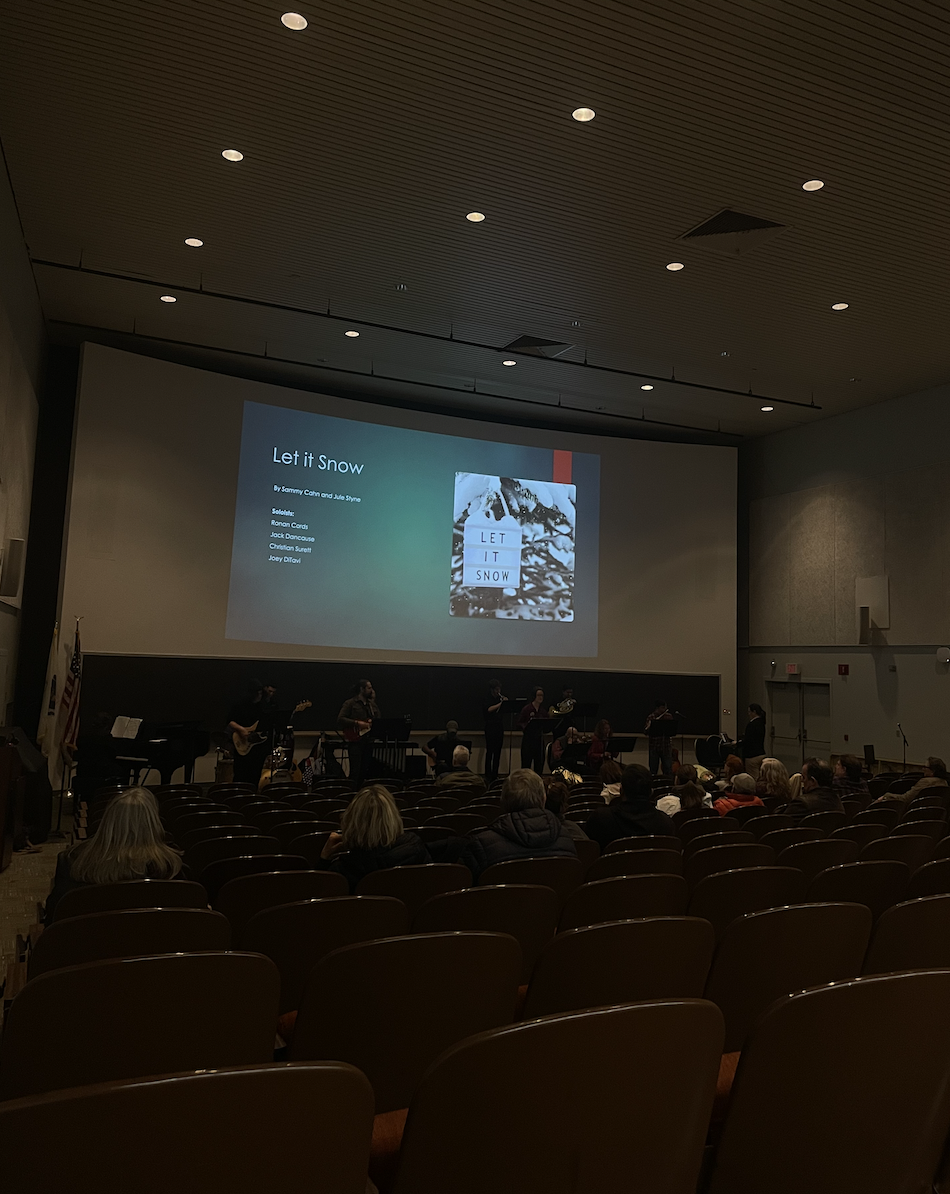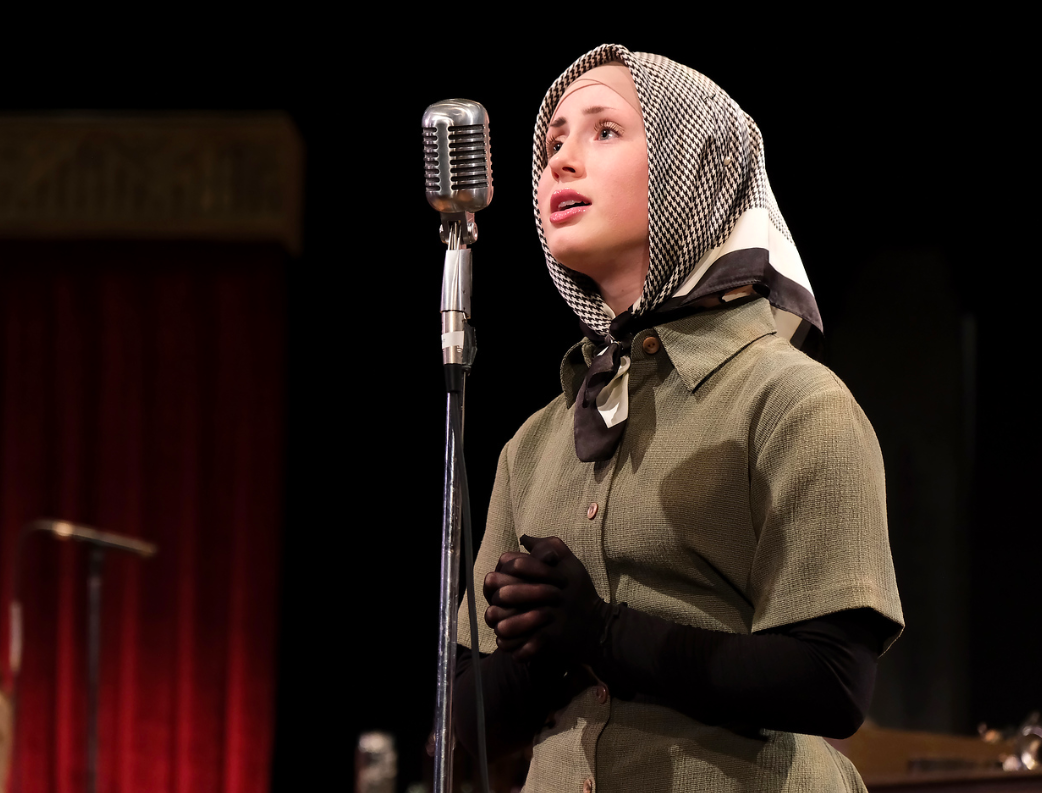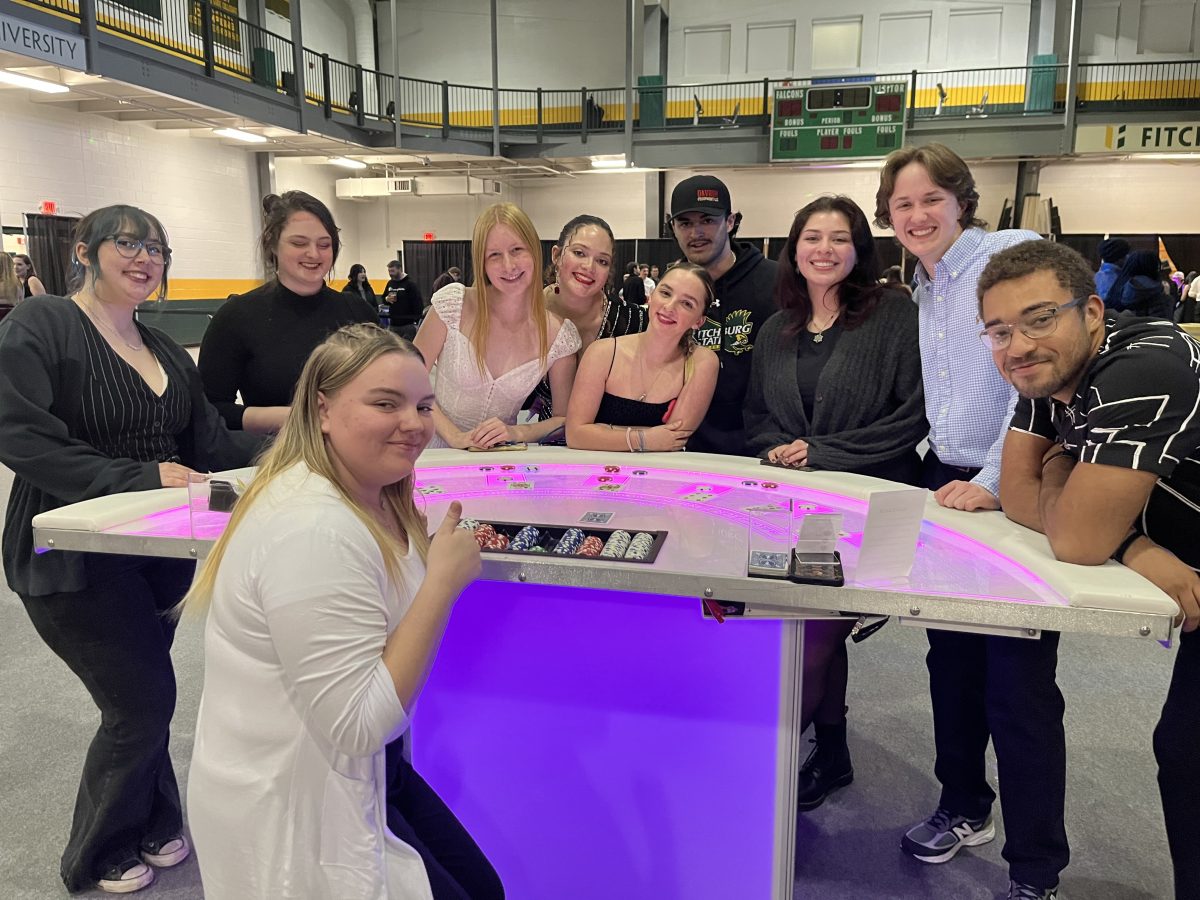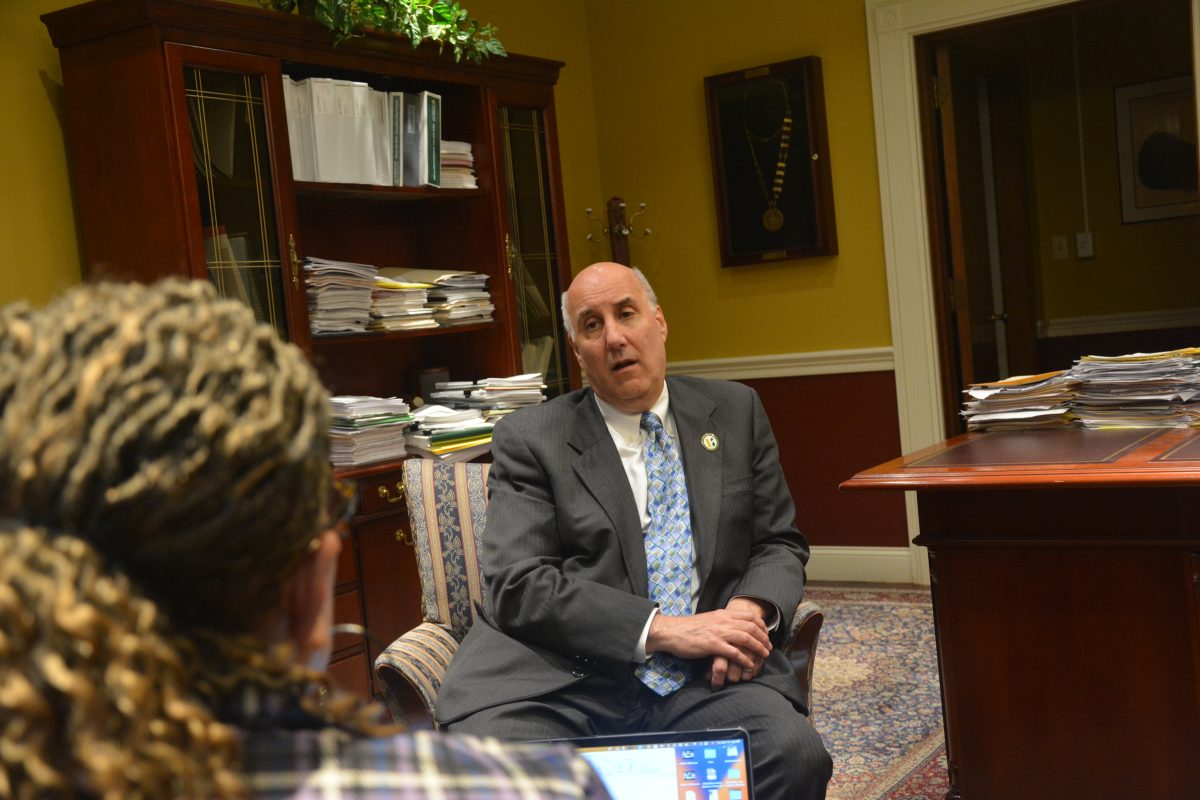By Danielle Blondin

You may have heard of Salaheddin Barhoum, but not for the reasons that you should have. Most of the country knows this teenage student as the face plastered on the front pages of newspapers a few days after the Boston Marathon bombing in 2013, with headlines accusing him of being one of the bombers. Barhoum was 16 years old.
Now a student at Fitchburg State, Barhoum sued the New York Post in a case that was settled last year under confidential terms. He will give a talk about the case, and his experiences after the bombing, at 3:30 p.m. on Thursday, Nov. 5 at Ellis White Lecture Hall in Hammond Hall. Admission is free and the public is invited.
“Everything changed,” Barhoum said of the time immediately following the accusations. “School was tough. My grade-point average went from a 3.0 to a 1.8. It was a month before I could go to school and not end up sick in the nurse’s office.”
Barhoum, whose family moved from Morocco to the United States when he was 12, said his new hometown of Revere was “very tolerant and welcoming” in those first days of unfounded media accusations. His neighbors and classmates rallied behind him and became the support system that pulled him through the sad, lonely weeks in April 2013. “People would come to my track meets and send me messages, people I didn’t even know,” Barhoum said. “The community was awesome. My high school teachers and my graduating class of 2015 were so supportive. Those were the best years of my life because I got so much support from people I didn’t even know.”
Because some of Salah’s family remains in Morocco – and due to the accusations, he couldn’t return home that year – that newfound support system proved crucial. “My grandmother was upset,” Barhoum said. “She actually came here to the United States to visit. We had a good time, I showed her around. But my family at home in Morocco felt horrible.”
Barhoum is now a freshman at Fitchburg State. He studies business administration, runs on Fitchburg State’s track team and doesn’t spend much time wallowing. “I try not to waste time. I stay up until 3 or 4 o’clock in the morning doing homework,” he said. “When you come to a different country, the only thing you want is to be successful. This [incident] was a huge obstacle, and I had to overcome it somehow. I forgot about my goals for a while.”
Barhoum emphasized his interest in international business, and hopes to connect his home in Morocco to his new home here by opening up his own Moroccan-themed business in the United States. “I want to own my own business so I don’t have to make someone else’s dreams come true – I want to make my own dreams come true,” he said.
As happy as Barhoum is to be at Fitchburg State and on his way to reaching those dreams, being admitted into college following a traumatizing incident proved remarkably difficult. “I applied to 10 schools, and believe it or not, when you have a 1.8 grade-point average, it’s hard to get admitted,” Barhoum said. “I got rejected from so many schools … and the ones that did accept me were so expensive – really easy to get into, but really hard to pay for.” At the time he was applying to colleges, Barhoum ran for the Greater Boston track team, and it was his friends who recommended he give Fitchburg State a try. After getting in contact with Fitchburg State’s coaches, Salah was finally welcomed into a college community. If it weren’t for the coaches, I wouldn’t be here,” he said. “They’re helpful people and I’m so glad that I’m here.”
Though Salah’s journey to higher education was more complicated than most, he expressed his gratitude and excitement to finally begin a new chapter. “The schools that didn’t accept me are going to regret it,” Barhoum said. “I’m here now, and I have straight A’s. Other schools thought I wasn’t able to do work or get my grades up, but Fitchburg State believed in me as a person – not my grades.”
Given Fitchburg’s proximity to Boston, Barhoum knew he was likely to be recognized from all the publicity. “When I came to school here, a couple people recognized who I was and wanted to hear about the story,” he said. “I always had that in my mind – one day I’m going to speak to the public about this. But I never thought about speaking about it to Fitchburg State.” He visited friends at Boston University and Harvard to share his experience. “It felt good to talk about it,” he said, “and it gave me motivation to talk about it more.”
In his talk at Fitchburg State, Barhoum plans to explain how his experience made him strong. “Not only did it make me strong, but it taught me a great lesson about not jumping to conclusions, and to think about things before you do them,” he said.
Barhoum said he also realized the importance of spending time by himself. “It was hard for me to go from hanging out with a lot of friends to being alone,” he said. “I was alone for two weeks in a room, no phone, no social media, trying to figure out what my next step was,” he said of the weeks immediately after he was accused of bombing the Boston Marathon. “Then I woke up on Sunday and said, ‘You know what, it’s going to be a new life.’ I felt like I was born again. I’m going to start something new.”






